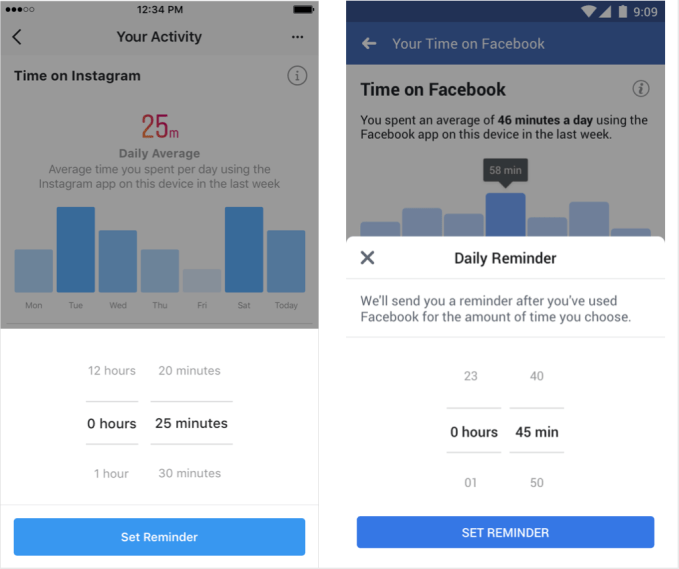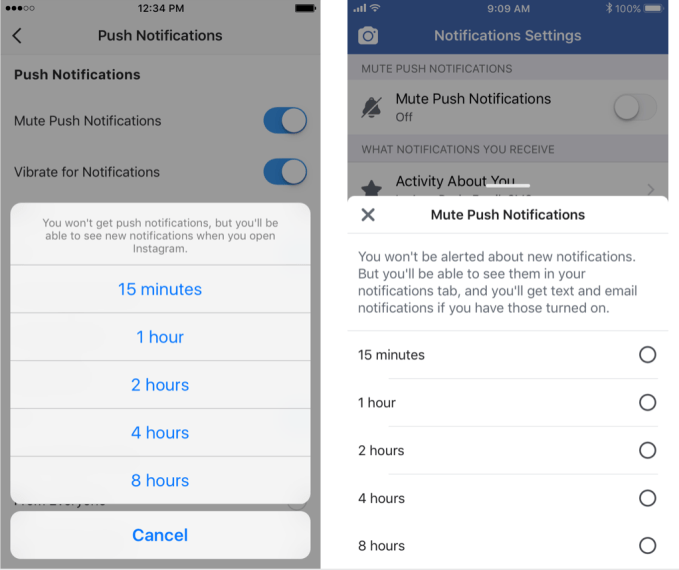It’s passive zombie feed scrolling, not active communication with friends that hurts our health, according to studies Facebook has been pointing to for the last seven months. Yet it’s treating all our social networking the same with today’s launch of its digital wellbeing screentime management dashboards for Facebook and Instagram in the US before rolling them out to everyone.
Giving users a raw count of the minutes you’ve spent in their apps each day in the last week plus your average across the week is a good start to making users more mindful. But by burying them largely out of sight, giving them no real teeth to deter overusage, and not distinguishing between passive and active behavior, they seem destined to be ignored while missing the point the company itself stresses.
TechCrunch scooped the designs of the two separate but identical Instagram and Facebook tools over the past few months thanks to screenshots generated from the apps’ code by Jane Manchun Wong. What’s launching today is what we saw, with the dashboards located in Facebook’s “Settings” -> “Your Time On Facebook” and Instagram’s “Settings” -> “Your Activity”.

Beyond the daily and average minute counts, you can set a daily “limit” in minutes after which either app will send you a reminder that you’ve crossed your self-imposed threshold. But they won’t stop you from browsing and liking, or force you to dig into the settings menu to extend your limit. You’ll need the willpower to cut yourself off. The tools also let you mute push notifications (you’ll still see in-app alerts), but only for as much as 8 hours. If you want anything more permanent, you’ll have to dig into their separate push notification options menu or your phone’s settings.


The announcement follows Instagram CEO Kevin Systrom’s comments about our original scoop, where he tweeted “It’s true . . . We’re building tools that will help the IG community know more about the time they spend on Instagram – any time should be positive and intentional . . . Understanding how time online impacts people is important, and it’s the responsibility of all companies to be honest about this. We want to be part of the solution. I take that responsibility seriously.”
But to live up to that responsibility, Facebook and Instagram will have to do more to actually keep us mindful of the time we spend in their apps and help us help ourselves.
0 coment�rios:
Post a Comment